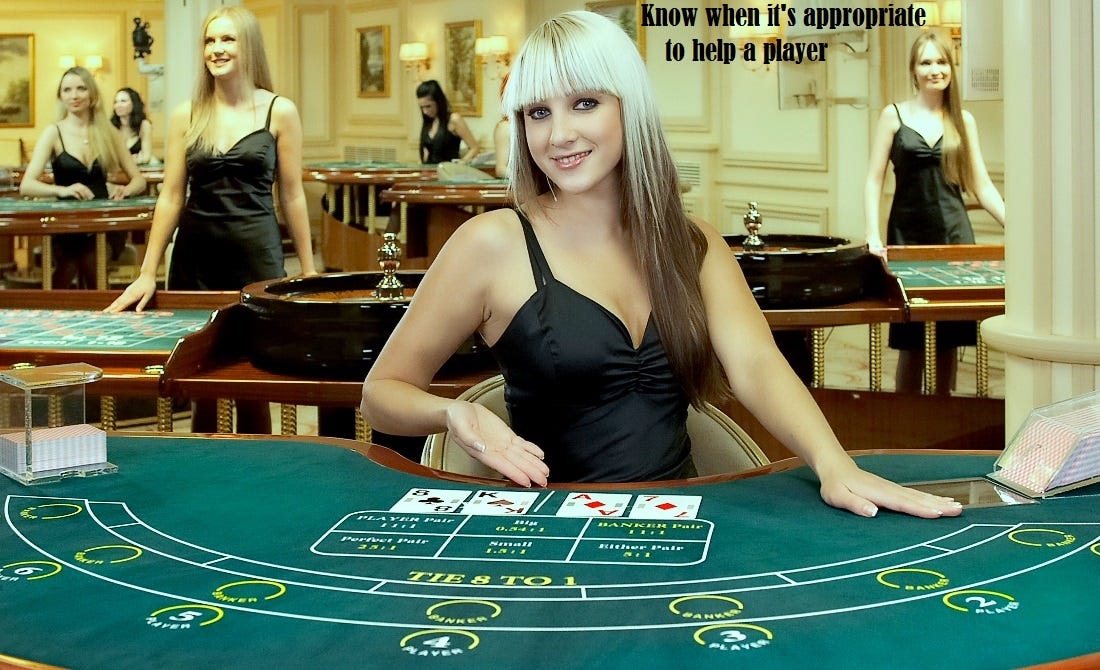Blackjack Dealer Training App
Blackjack Trainer Lite might be the perfect entry level blackjack training app out there. It allows you to learn when to hit, stand, split, double or surrender. It promises to maximize your chance of winning at blackjack by teaching you the basic strategy. It’s important to note that BlackJack Trainer Lite is not a basic blackjack game. No other application allows you to set as many configurations as BlackJack trainer. This app allows you configure any table, from 1-8 decks, with or without dealer peek, with or without Surrender, and whether the dealer hits on soft 17 or not. This is NOT a blackjack game, but an application that teaches you the right play.
While you’re playing blackjack, you’ll probably think of the dealer in terms of how well they interact with you. A friendly dealer can make a game feel more social, while an unfriendly one can put a damper on the mood. In a higher limit game, a serious blackjack dealer can add to the atmosphere of the game.

But there’s a lot more to being a blackjack dealer than just interacting with the players. Of course, if the dealer is doing their job well, you won’t even notice all the things they’re doing at the table. But the dealer needs to know rules for all sorts of contingencies, understand how to pay out all bets quickly and accurately, and how to deal with mistakes when they occur. They also need to be on the watch for players looking to cheat or otherwise take advantage of the casino or their fellow players.
How to Become a Blackjack Dealer
Most blackjack dealers get their start by going to a dealer school. At these schools – many of which are run by the casinos themselves – dealers learn all the skills they need to deal games such as blackjack in a casino environment.
Even having gone to dealer school, however, there’s no guarantee you’ll be able to get a job as a blackjack dealer. After applying for a dealer job, you may need to audition in front of casino personnel to prove you’re capable of handling the job. Even after that, you might need to attend some in-house training to learn the specific regulations and procedures used in that casino.
Another route to becoming a blackjack dealer is to work in a casino in another capacity before moving on to the lucrative dealer position. For example, you might get a job assisting in the pit, and then apply for a blackjack job when one opens up.
As a blackjack dealer, there are benefits and drawbacks. The pay can be quite good, especially when considering the tips you’ll get from winning players. On the other hand, the hours are often erratic; dealers may be sent home early if there’s less activity in the casino than usual, while they may be forced to deal mandated overtime if the casino is busier than expected.
Many skills are required to be a blackjack dealer. For one, you must be comfortable on your feet; you’ll be standing most of the time you’re in a casino, other than on breaks. On the bright side, breaks are more frequent than in most jobs (dealers usually get 20 minutes off after each hour of dealing). You should be able to count and do basic math quickly, both in terms of keeping track of hand scores and in paying out bets. It’s also important to be accurate in fast in everything you do at the table.
One other important thing to do as a blackjack dealer is to make sure you don’t give players information that they’re not supposed to have access to. This can happen in several ways. One common way a dealer can slip up is by allowing players to see cards when they shouldn’t, such as exposing the dealer’s hole card for an instant before placing it down on the table. In games where the dealer must physically peak at the hole card, there are two ways that the dealer might unwittingly help the players; they may once again allow the players to view the hole card momentarily, or they may give away information based on their reactions to the hole card.
Blackjack Dealer Rules
During a blackjack game, there are a number of rules the blackjack dealer must follow. In most blackjack games, dealers must hit with any hand of 16 points or less, but must stand with any hand of 17 or more. In some games, dealers are also instructed to hit on a soft 17.
Related News
